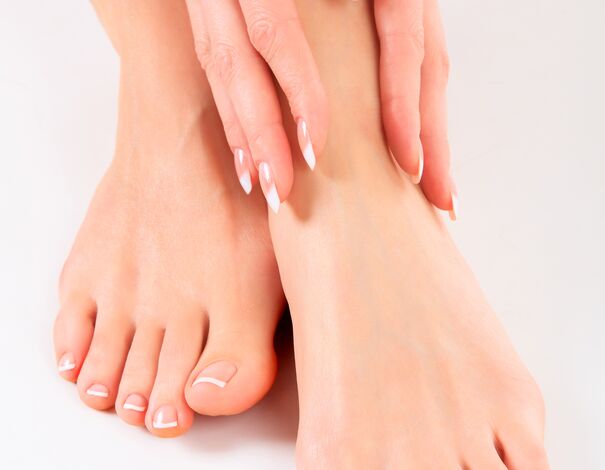How to get rid of warts?
Warts are small, circumscribed growths on the skin caused by a virus of the human papillomavirus (HPV) group. There are more than 100 distinct strains of HPV that can cause different types of warts.
Most warts are benign, but highly contagious, through direct or indirect contact. While they often disappear on their own without treatment within a few years, it is better to have them removed if they are painful and, of course, to avoid passing them on to others.
Types of warts
Warts can grow anywhere on the body. Here are a few known types of warts and their clinical characteristics:
- Common warts: Small, rough bumps typically flesh coloured or greyish with small black specks; they appear alone, usually on hands and fingers (common among children).
- Flat warts: Small, smooth lesions that form clusters on the face, legs or back of the hands.
- Plantar warts: Hard, flat lesions – sometimes mistaken for corns – that affect the sole of the foot or the heel and may at times be painful due to the weight of the body.
- Filiform warts: Long, thin lesions that grow near the eyes and on the face and neck.
- Periungual and subungal warts: Lesions that grow around or beneath fingernails. They are common in people who bite their nails.
- Genital warts (condylomata acuminatum): Tiny, flat lesions that sometimes develop in groups on the genitalia (internal or external). They are more serious due to their associated emotional and social impact (e.g. embarrassment, isolation) and health risk (potential to develop into cancer). Transmission occurs during direct sexual contact, with lesions appearing from 1 to 24 months after sexual intercourse. This type of wart requires special treatment. The treatment options below do not apply. Be sure to see a doctor.

Treating warts
There are many over-the-counter products to eliminate warts. Most of these contain the same active ingredient – salicylic acid – and come in a variety of forms:
- Plaster: Easy to apply; requires less handling;
- Liquid: The most commonly used form;
- Gel: Easier to use than the liquid.
Salicylic acid works by eliminating a thin layer of infected skin every day. But the product should be applied only on the wart. That’s why it’s important to protect the healthy surrounding skin. To do so, simply apply clear nail polish or petroleum jelly (Vaseline®) around the wart. Also, to enhance the action of the salicylic acid, soak your feet 5 to 15 minutes then rub the wart with a pumice stone before each application.
Products containing salicylic acid might not be suitable for everyone; talk to your pharmacist before you begin treatment.
There also secondary treatment options such as the use of liquid nitrogen (also available over the counter), laser, electrocoagulation and surgical removal.
With treatment, warts often disappear quickly, especially among children. However, healing usually takes longer with adults. And remember that regardless of the treatment used, the virus remains in the body and can become active again. The immune system is responsible for keeping it under control.
Consult a health professional if you are not sure that what you have are actually warts or if your warts remain, multiply or recur after treatment. Also seek medical attention if they are painful, if they bleed, if they cause deformity in a nail or if there are signs of infection.
How to prevent warts?
Warts are highly contagious. To avoid spreading them to others, cover them during treatment, do not scratch them, wash your hands after touching them and use a clean towel to dry them (do not share it with anyone else). If you opt for an at-home treatment, always disinfect your pumice stone (and all other instruments) before and after each use.
As for plantar warts, the best way to prevent them is to avoid walking barefoot in public places, such as gymnasiums, pools and showers. Sandals are always a must!
Pharmacy services

Talk to your pharmacist for expert advice on the treatment that will be right for you.
Tips and advices
- Warts are very contagious
- There are several over-the-counter products available to remove warts.
- Warts can grow anywhere on the body.
- Most warts are safe.
- Prevention: avoid walking barefoot in public places such as gyms, swimming pools and communal showers!
To learn more about topics in the same theme:
Impetigo
Urinary infection
Vaginitis
Cold sores
The pharmacy services presented in this section are offered by pharmacist owners who are affiliated with Uniprix. The pharmacists are solely responsible for the professional activities carried out during the practice of pharmacy. These services are offered in participating pharmacies only. Certain fees and conditions may apply.
* The information contained herein is provided for informational purposes only and is not intended to provide complete information on the subject matter or to replace the advice of a health professional. This information does not constitute medical consultation, diagnosis or opinion and should not be interpreted as such. Please consult your health care provider if you have any questions about your health, medications or treatment.
